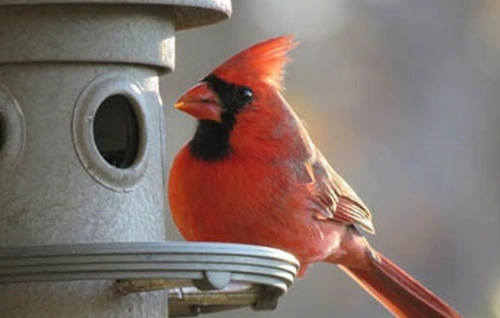No, it is not universally illegal to feed birds in Florida, but there are specific laws and regulations that restrict bird feeding in certain areas and circumstances. Feeding birds can be prohibited in protected areas, like state parks or wildlife refuges, or when it creates a nuisance or danger to the environment, other wildlife, or humans.
Florida Laws and Regulations on Bird Feeding
1. Feeding Protected Species
- Feeding certain protected bird species, such as pelicans, eagles, or migratory birds, can be illegal under both state and federal laws.
- The Migratory Bird Treaty Act makes it unlawful to hunt, capture, or feed migratory birds without proper authorization. Feeding these birds in Florida can result in fines or other penalties.
2. State Park Rules
- Florida state parks often prohibit feeding wildlife, including birds, to prevent harm to the animals and maintain natural ecosystems. Violating these rules can lead to fines and removal from the park.
3. Local Ordinances
- Some Florida cities and counties have local ordinances restricting or banning bird feeding in residential or public areas. For example:
- Feeding birds that create a public nuisance, like pigeons or seagulls, may result in fines.
- In areas like coastal regions, feeding gulls is discouraged due to their aggressive behavior and environmental impact.
4. Nuisance and Public Safety Laws
- Feeding birds in a way that causes overpopulation, aggressive behavior, or property damage can violate nuisance laws. Homeowners’ associations (HOAs) and community bylaws often prohibit feeding birds to prevent these issues.
Environmental and Safety Concerns of Bird Feeding
1. Dependence on Human Food
- Feeding birds disrupts their natural foraging behavior, leading to unhealthy dependence on humans for food.
- Bread and processed foods can cause malnutrition and health problems, such as “angel wing” in waterfowl.
2. Overpopulation and Aggression
- Feeding birds can lead to overpopulation, increasing competition for resources and aggressive behavior among birds.
- Overcrowding at feeding sites may also spread diseases like avian influenza.
3. Environmental Damage
- Uneaten food can attract rodents and pests or pollute waterways, impacting ecosystems.
- Bird droppings from large populations can damage property and contaminate water supplies.
Exceptions to Feeding Restrictions
1. Private Property
- Feeding birds on private property is generally allowed unless it violates local ordinances or HOA rules. However, it is recommended to feed birds responsibly and with appropriate food.
2. Backyard Bird Feeders
- Using backyard bird feeders to attract songbirds like cardinals or finches is usually permitted and popular among Florida residents. Providing seeds or nectar is a safe way to enjoy birdwatching without harming the birds or the environment.
3. Conservation Efforts
- Feeding birds in controlled environments as part of conservation or rehabilitation efforts is allowed with proper permits and guidelines.
Penalties for Illegal Bird Feeding
1. Fines
Violating bird feeding regulations in Florida can result in fines ranging from $50 to $500, depending on the severity and jurisdiction.
2. Removal from Parks or Public Areas
Feeding birds in prohibited areas like state parks may lead to removal and, in some cases, suspension of park privileges.
3. Civil Liability
If bird feeding causes property damage or public safety issues, the individual responsible may face civil liability for damages.
Best Practices for Feeding Birds Responsibly
1. Provide Nutrient-Rich Food
Offer seeds, nuts, or fruits specifically suited for birds. Avoid bread and other processed foods.
2. Use Feeders
Use bird feeders to control the amount of food provided and minimize waste or pest attraction.
3. Avoid Overfeeding
Provide only enough food for birds to consume in a short time to prevent dependence and overcrowding.
4. Follow Local Guidelines
Check local and state regulations to ensure compliance with bird feeding rules in your area.
In Summary, While it is not universally illegal to feed birds in Florida, restrictions exist to protect wildlife, ecosystems, and public safety. Understanding local regulations and following best practices can ensure responsible bird feeding. Avoid feeding in prohibited areas and provide nutritious food in small amounts to minimize harm.
Related FAQs
Q1. Is it illegal to feed seagulls in Florida?
Ans: Feeding seagulls is often discouraged or prohibited in coastal areas due to their aggressive behavior and potential to disrupt the ecosystem. Check local regulations for specific restrictions.
Q2. Can I feed ducks or geese in Florida?
Ans: Feeding ducks and geese is generally discouraged, as it can lead to health issues for the birds and environmental concerns. Some areas explicitly ban feeding waterfowl.
Q3. Are backyard bird feeders allowed in Florida?
Ans: Yes, backyard bird feeders are generally allowed, provided they do not violate HOA rules or local ordinances.
Q4. What are the penalties for feeding protected birds?
Ans: Feeding protected bird species can result in fines and penalties under the Migratory Bird Treaty Act or Florida state laws.
Q5. What should I do if someone feeds birds illegally in my area?
Ans: Report the activity to local authorities, such as the Florida Fish and Wildlife Conservation Commission or local law enforcement.

